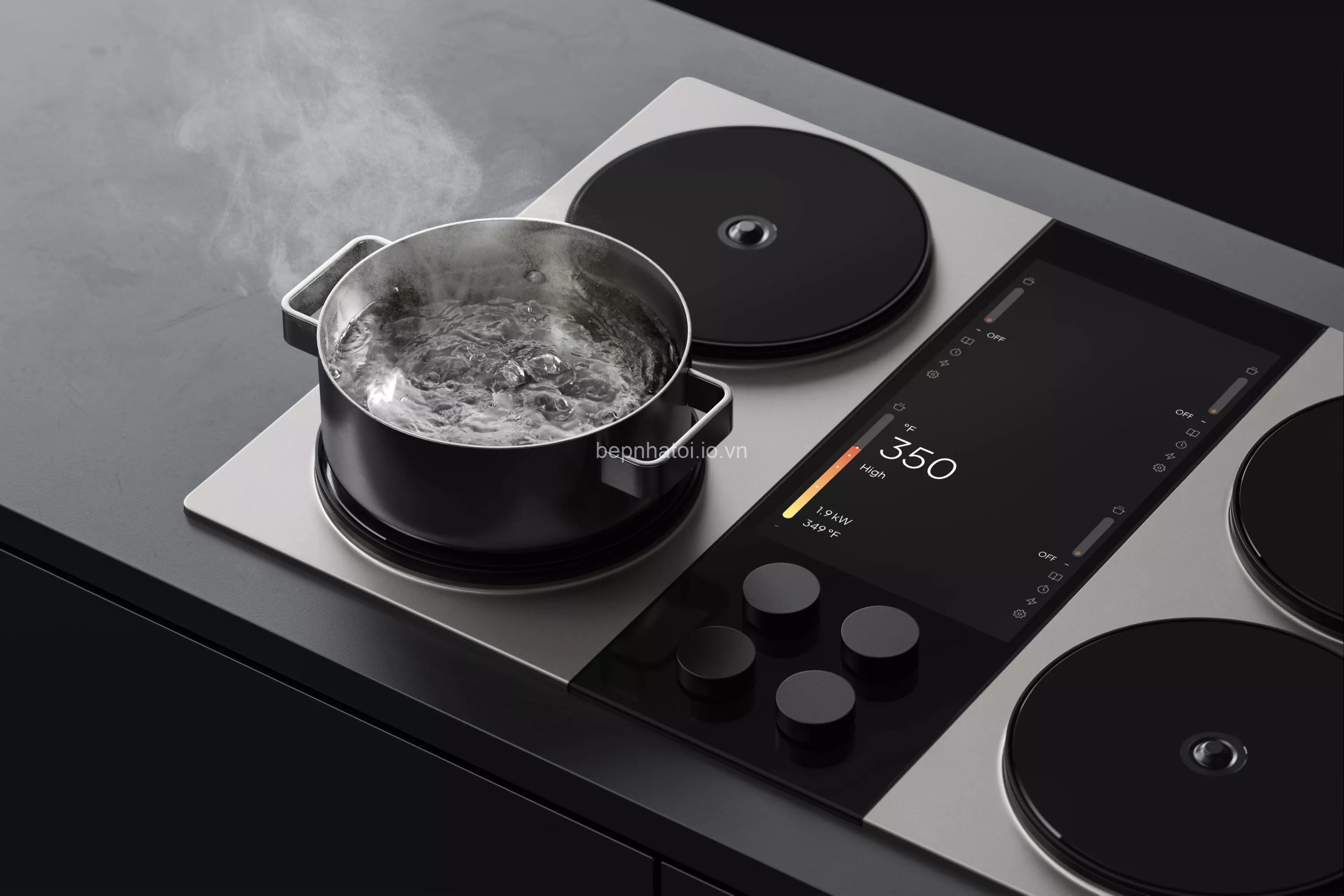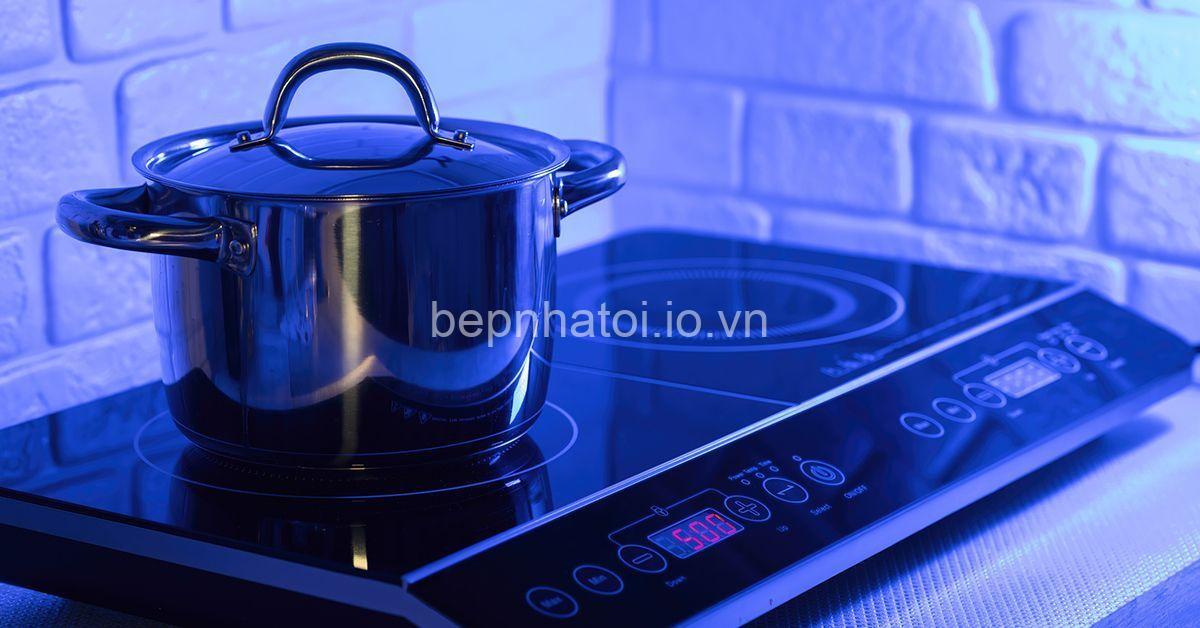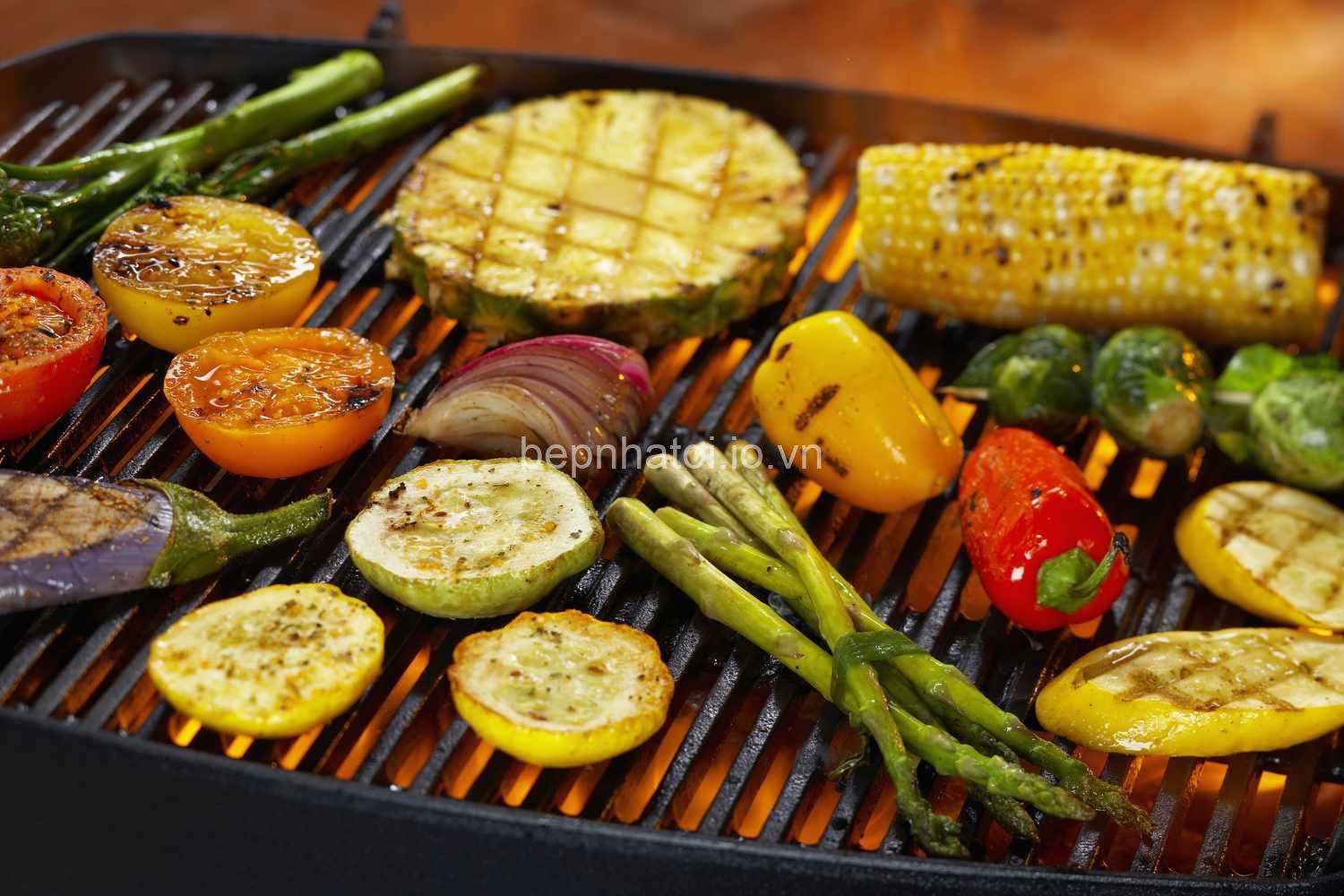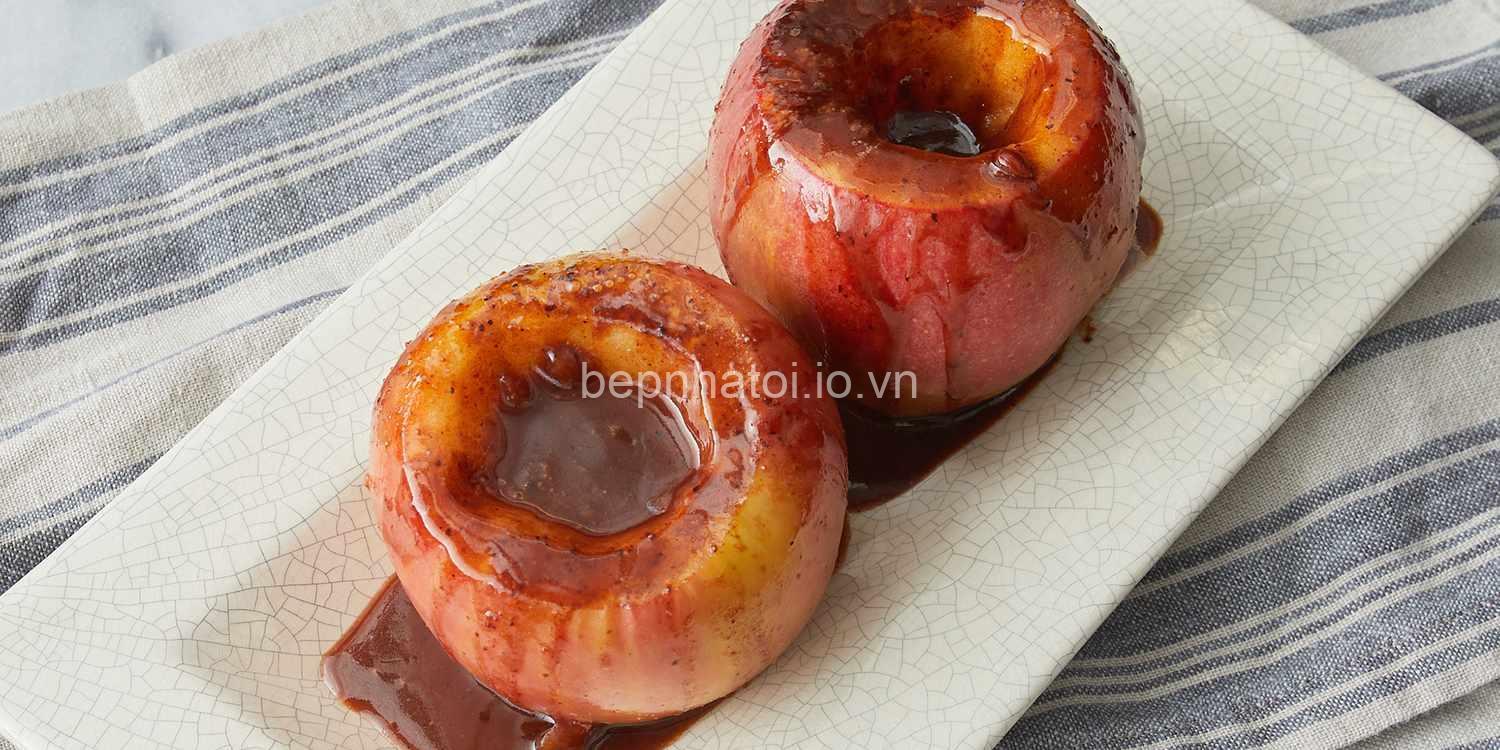
Electric Stove Innovations: Induction Cooking & Smart Technology. In today’s article, bepnhatoi.io.vn will explore with you in the most detailed and complete way. See now!
The Rise of Induction Cooking: A Game Changer in Heat Transfer
Induction cooking is a technology that has taken the culinary world by storm, offering a more efficient, precise, and responsive cooking experience. Unlike traditional electric heating methods that rely on heating the stovetop surface, induction uses electromagnetic fields to directly heat the cookware. This direct heat transfer results in faster heating times and a more responsive cooking experience.
Imagine a scenario where you need to sear a steak to perfection. With induction cooking, the instant you turn on the burner, the cookware starts to heat up, allowing you to achieve that desirable sear almost instantly. This responsiveness is a game changer for culinary enthusiasts who crave precise control over their cooking process.
Induction also boasts several other advantages:
- Faster and More Efficient Heating: Induction cooktops heat up much faster than traditional electric or gas stoves, saving you valuable time in the kitchen. This efficiency also translates to reduced energy consumption, making induction cooking a more environmentally friendly option.
- Precise Temperature Control: Induction cooktops offer exceptional temperature control, allowing you to maintain a specific temperature with remarkable accuracy. This feature is particularly beneficial for delicate cooking tasks, such as simmering sauces or melting chocolate.
- Enhanced Safety: Induction cooktops generate very little heat on the surface, making them significantly safer than traditional electric or gas stoves. Since the cooktop itself doesn’t get hot, the risk of burns is greatly reduced, making induction a safer choice for families with young children or pets.
- Energy Efficiency: Induction cooktops are highly energy efficient, converting almost all of the energy into heat, minimizing energy waste. This means less money spent on your energy bills and a smaller environmental footprint.
However, induction cooking isn’t without its drawbacks:
- Cost: Induction cooktops are generally more expensive than traditional electric stoves.
- Cookware Compatibility: Induction cooktops require special cookware made from ferromagnetic materials, such as cast iron or stainless steel, to work effectively.
Despite these limitations, the advantages of induction cooking are undeniable.
Latest Advancements in Induction Technology:
- Smart Induction Cooktops: The latest induction cooktops are integrating smart features for an even more convenient cooking experience. These features include built-in timers, pre-programmed cooking settings, and remote control capabilities, allowing you to manage your cooking from your smartphone or tablet.
- Advanced Induction Technology: Manufacturers are continuously improving induction technology, offering features like multiple induction zones with independent temperature control and advanced heat distribution systems for even more precise cooking.
- Induction Cookware Innovation: Cookware manufacturers are developing induction-compatible cookware with enhanced heat transfer properties for a superior cooking experience.

Smart Technology: Bringing Connectivity and Convenience to Electric Stoves
The integration of smart technology is rapidly changing the landscape of kitchen appliances, and electric stoves are no exception. Smart electric stoves offer a range of features designed to make cooking more convenient and efficient.
Here’s how smart technology is enhancing the electric stove experience:
- Wireless Connectivity: Smart electric stoves connect wirelessly to your home network, allowing you to control and monitor them remotely using your smartphone, tablet, or voice assistant. You can preheat the oven, adjust cooking times, and even receive notifications when your food is ready, all from the comfort of your couch.
- Voice Control: With voice assistant integration, you can control your smart stove using simple voice commands. This hands-free functionality is incredibly convenient, allowing you to focus on other tasks while cooking.
- Pre-programmed Cooking Settings and Recipes: Smart electric stoves often come with pre-programmed cooking settings for various dishes, taking the guesswork out of cooking. You can select from a variety of options, including roasting, baking, grilling, and more, ensuring consistent results every time.
- Data Collection and Analysis: Smart electric stoves collect data about your cooking habits, allowing them to learn your preferences and offer personalized recommendations. For example, they might suggest recipes based on your past cooking patterns, offer tips on cooking techniques, or even adjust cooking times based on your individual needs.
The benefits of smart electric stoves are undeniable:
- Convenience: Smart features simplify cooking tasks and free up your time, allowing you to focus on other things.
- Control: Smart electric stoves offer greater control over the cooking process, ensuring consistent results and optimal cooking conditions.
- Information and Options: Smart features provide access to a wealth of information, including recipes, cooking tips, and personalized recommendations, making cooking more enjoyable and rewarding.
Despite their benefits, there are some potential drawbacks to smart technology in electric stoves:
- Privacy Concerns and Data Security: Like any connected device, smart electric stoves raise privacy concerns, as they collect data about your cooking habits.
- Reliance on Internet Connectivity: Smart electric stoves require a stable internet connection to function properly. This means that if your internet goes down, you might lose access to the smart features.
- Cost Premium: Smart features often come at a premium cost, adding to the overall price of the electric stove.
Beyond the Basics: Innovations in Electric Heating Elements and Design
The heart of any electric stove lies in its heating elements. The advancements in electric heating element technology have been remarkable, leading to more efficient, durable, and user-friendly options.
- High-Efficiency Radiant Elements: Radiant heating elements are known for their efficient heat distribution, ensuring consistent cooking across the entire surface of the stovetop.
- Self-Cleaning Elements: Self-cleaning elements are a boon for busy home cooks, making cleaning a breeze. These elements use high temperatures to burn off food spills and residue, eliminating the need for manual scrubbing.
- Durable and Long-Lasting Heating Elements: Manufacturers are developing heating elements that are more durable and resistant to wear and tear, extending their lifespan and ensuring long-term performance.
The design of electric stoves has also undergone a transformation, with manufacturers embracing modern aesthetics and ergonomic features for enhanced user experience.
- Sleek and Modern Aesthetics: Modern electric stoves boast sleek and contemporary designs that blend seamlessly with any kitchen décor.
- Integration of Induction Zones with Traditional Heating Elements: Many modern electric stoves combine the advantages of induction cooking with traditional electric heating elements, offering flexibility and versatility.
- Ergonomic Design: Ergonomics play a vital role in modern electric stove design, ensuring ease of use and comfort. Features like intuitive controls, ergonomic knobs, and strategically placed heating elements enhance the overall cooking experience.
The Future of Electric Stoves: What’s on the Horizon?
The world of electric stove technology is constantly evolving, with exciting advancements on the horizon.
- Integration of Renewable Energy Sources: The future of electric stoves might see the integration of renewable energy sources, such as solar power or wind energy, making cooking more sustainable and environmentally friendly.
- Personalized Cooking Experiences with AI: Artificial intelligence (AI) is poised to play a significant role in the future of cooking. AI-powered electric stoves might offer personalized cooking recommendations, adjust cooking times based on your preferences, and even learn from your cooking habits to suggest new recipes or cooking techniques.
- Energy Efficiency and Eco-Friendly Features: The emphasis on energy efficiency and eco-friendly features will continue to drive innovation in electric stove technology. This might include features like intelligent energy-saving modes, water-saving technology, and the use of recycled materials in the manufacturing process.
The Impact on You: How These Innovations Affect Your Cooking Experience
The advancements in electric stove technology have a significant impact on the way we cook and enjoy our meals.
- Convenience: Induction cooking and smart features offer unparalleled convenience, allowing you to cook faster, more efficiently, and with greater control.
- Efficiency: Energy-saving features and advanced heating elements ensure that you’re using your stove effectively, minimizing energy consumption and saving money on your energy bills.
- Enjoyment: Innovative design and user-friendly features enhance the overall cooking experience, making it more enjoyable and rewarding.
These innovations are transforming the kitchen into a more sophisticated and technologically advanced space, empowering cooks of all levels to unleash their culinary creativity.
Finding the Right Electric Stove for Your Needs
Choosing the right electric stove is a significant investment, so it’s essential to consider your individual needs and preferences.
Here are some key factors to consider when selecting an electric stove:
- Budget: Electric stoves come in a wide range of prices, so it’s essential to set a budget before you start shopping.
- Cooking Style: Consider your cooking habits and preferences. If you’re a frequent baker, an electric range with a large oven might be a better choice. If you prefer grilling or searing, an induction cooktop with a powerful burner might be more suitable.
- Kitchen Size and Design: Make sure the electric stove you choose will fit comfortably in your kitchen and complement the overall design aesthetic.
- Energy Efficiency: Consider the energy efficiency rating of the stove to reduce your energy consumption and save money on your energy bills.
- Smart Features: If you’re interested in the convenience of smart features, look for electric stoves with wireless connectivity, voice assistant integration, and pre-programmed cooking settings.
- Brand Reputation and Customer Reviews: Read reviews from other users to get a better understanding of the quality, reliability, and performance of different brands and models.
By carefully considering these factors, you can choose an electric stove that meets your needs and elevates your cooking experience.
Is induction cooking really faster than traditional electric heating?
Induction cooking is indeed faster than traditional electric heating. This is because induction uses electromagnetic fields to directly heat the cookware, eliminating the need for the stovetop surface to heat up first.
What are the disadvantages of induction cooking?
The main disadvantages of induction cooking are the higher cost and the requirement for special induction-compatible cookware.
What are the benefits of smart electric stoves?
Smart electric stoves offer numerous benefits, including increased convenience, precise control over the cooking process, access to recipes and cooking tips, and personalized recommendations.
Are smart electric stoves secure?
Smart electric stoves, like any connected device, have potential privacy and security concerns. It’s essential to choose a reputable brand and follow best practices for internet security to mitigate these risks.
What are the latest trends in electric stove technology?
The latest trends in electric stove technology include the integration of renewable energy sources, the use of artificial intelligence for personalized cooking experiences, and the emphasis on energy efficiency and eco-friendly features.
Conclusion
The evolution of electric stove technology is truly remarkable. From the rise of induction cooking to the integration of smart features, these innovations are changing the way we cook and enjoy our meals. To learn more about electric stoves, be sure to check out my website, bepnhatoi.io.vn. Don’t hesitate to leave a comment or share this article with your fellow cooking enthusiasts!
Remember, stay curious and keep exploring the exciting world of electric stoves!
[Entity – Attribute – Value]:
- Entity: Induction cooktop | Attribute: Heat transfer | Value: Fast, efficient, precise
- Entity: Induction cooktop | Attribute: Compatibility | Value: Limited to induction cookware
- Entity: Smart stove | Attribute: Connectivity | Value: Wi-Fi, Bluetooth
- Entity: Smart stove | Attribute: Features | Value: Remote control, voice commands, recipes
- Entity: Electric stove | Attribute: Heating element | Value: Radiant, induction, ceramic
- Entity: Heating element | Attribute: Efficiency | Value: High, low
- Entity: Heating element | Attribute: Durability | Value: Long-lasting, fragile
- Entity: Design | Attribute: Aesthetics | Value: Sleek, modern, minimalist
- Entity: Design | Attribute: Functionality | Value: Easy to use, user-friendly
- Entity: Energy efficiency | Attribute: Rating | Value: A+, A, B
- Entity: Energy efficiency | Attribute: Impact | Value: Reduced energy consumption, lower costs
- Entity: Safety features | Attribute: | Value: Automatic shut-off, child lock
- Entity: User experience | Attribute: Control | Value: Precise temperature control, responsive
- Entity: User experience | Attribute: Convenience | Value: Easier to clean, less maintenance
- Entity: Cost | Attribute: Range | Value: Affordable, high-end
- Entity: Induction cooking | Attribute: | Value: Faster cooking, more precise
- Entity: Smart stove | Attribute: | Value: Increased convenience, control
- Entity: Electric stove | Attribute: | Value: Energy efficient, safe
- Entity: Cookware | Attribute: | Value: Induction-compatible, non-stick
- Entity: Kitchen design | Attribute: | Value: Contemporary, minimalist
[Entity, Relation, Entity]:
- Electric stove – HAS – Heating element
- Electric stove – USES – Smart technology
- Induction cooktop – IS A TYPE OF – Electric stove
- Heating element – PROVIDES – Heat
- Smart stove – HAS – Wireless connectivity
- Cookware – COMPATIBLE WITH – Induction cooktop
- Energy efficiency – IMPACTS – Cost
- User experience – INFLUENCED BY – Design
- Design – IMPACTS – Aesthetics
- Technology – DRIVES – Innovation
[Semantic Triple (Subject, Predicate, Object):
- Induction cooktop – IS A – Type of electric stove
- Electric stove – HAS – Heating element
- Heating element – PROVIDES – Heat
- Smart stove – HAS – Wireless connectivity
- Smart technology – ENABLES – Remote control
- Smart stove – USES – Recipe database
- Induction cooktop – REQUIRES – Induction cookware
- Electric stove – OFFERS – Energy efficiency
- Electric stove – IMPROVES – User experience
- Electric stove – IMPACTS – Kitchen design





